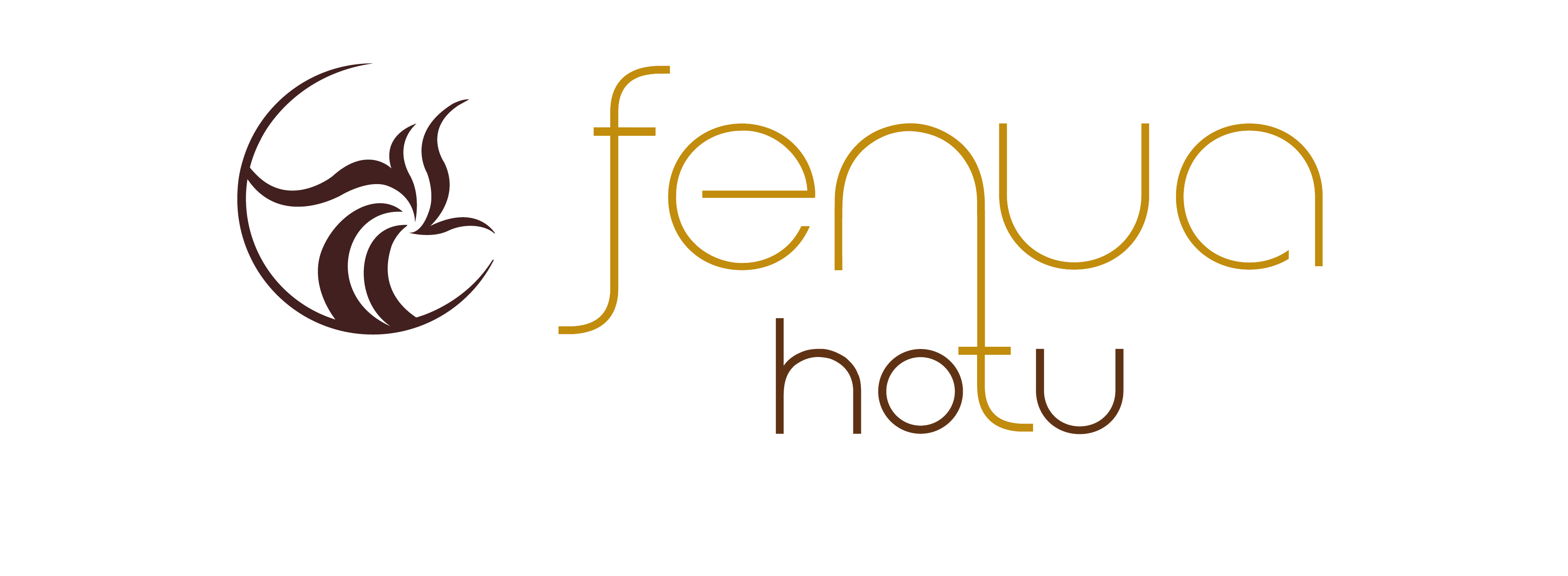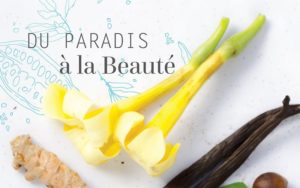

This plantation, located 300 meters from our industrial site on the island of Tahiti, plays a strategic role in the development and control of the group’s business. The specifications of the appellation d’origine (appellation of origin) label for Monoï de Tahiti require the Tahitian tiaré flower (Gardenia taitensis) to be used in the process.
Prior to establishing operations, the soil was prepared and managed as follows:
• Trees and bushes were pruned and brush was cleared mechanically,
• Paths and trails were created,
• The soil was drained and regraded,
• The ground was leveled and smoothed,
• The entire area was outfitted with an irrigation system.
Starting in November 2015, using a permaculture model, 1400 Tahitian tiaré bushes were planted on a 1.6 hectare plot, with the aim of obtaining organic certification.
This decision to secure our supply chain was spurred by the overall state of the agricultural industry, the aging of our main growers, especially producers of Tahitian tiaré, and the planned extension of the laboratory’s activities.
With a view to maximizing the success of this project, LCPS called upon an agronomy engineer to oversee the choice of technical itinerary and enable an organic agricultural model. Our cultivation system complies with the WHO Guidelines on Good Agricultural and Collection Practices (GACP) for Medicinal Plants.
In order to manage plant diseases and pests, we use preventive techniques, including:
• Promoting good soil drainage to avoid excess moisture,
• Maintaining a soil covering with mulching,
• Fostering biodiversity on the farm,
• Using simple integrated pest management techniques.
On our land, soil fertility is ensured using organic fertilizers made of natural products: compost, mulch, algae, green fertilizers, etc. Green fertilizers include various crops that are not planted for harvesting but rather to improve and protect the soil. Green fertilizers help to prevent soil erosion and improve its structure while keeping weeds under control. They are also planted in order to harbor nutritious elements which are released when they are clipped, pruned or have a mild herbicide applied to them.
On our plantation, we use the legume Arachis pintoi, a non-climbing perennial peanut which provides even cover under the tiaré bushes. In addition to providing a comfortable surface for workers during harvesting, this legume absorbs nitrogen from the atmosphere, which not only prevents the soil from becoming nutritionally depleted but actually enhances it.
Fenua Hotu is a model of environmentally-friendly agriculture. In addition, it attracts tourists and, together with our Monoï de Tahiti production unit, helps educate the public. This kind of outreach, upstream from our production facility, demonstrates how important it is to us to secure our productive capabilities and also our commitment to Polynesian botanical expertise. Since its founding, Fenua Hotu has raised awareness among the local population of the fragility of the tiaré, an emblematic flower which is at risk of becoming scarce.

